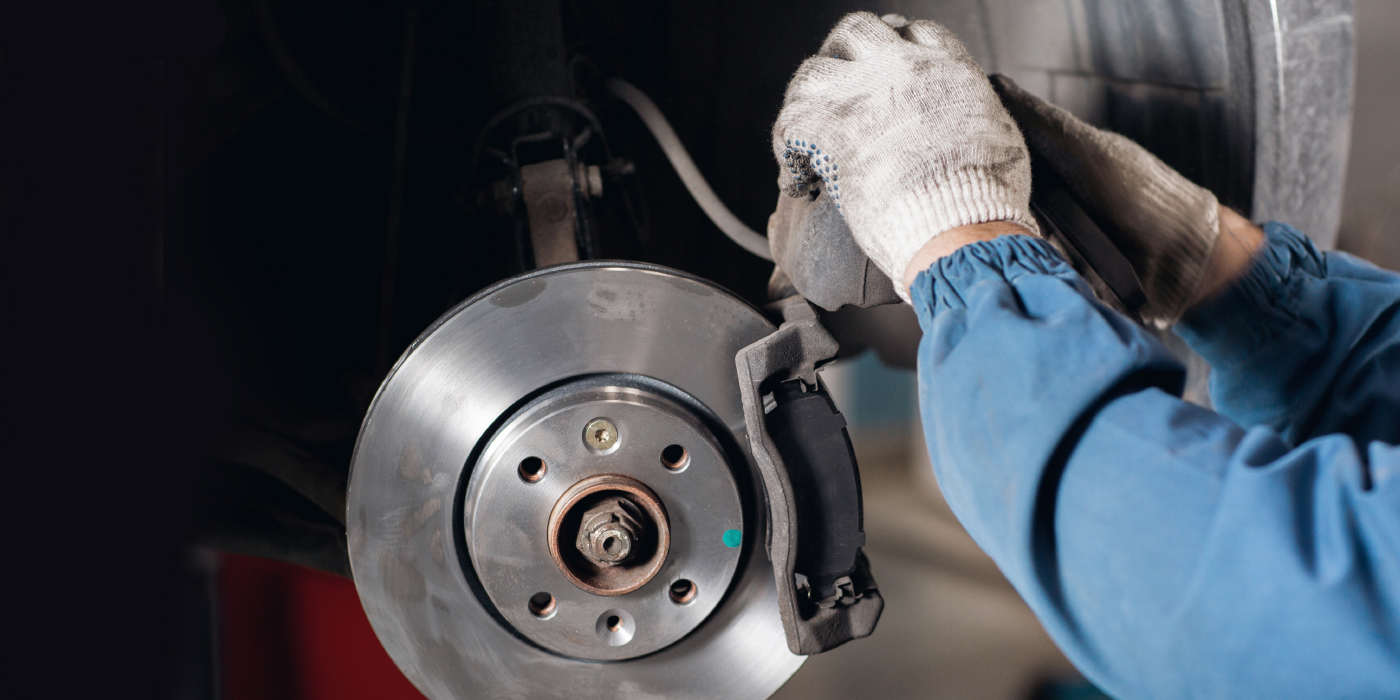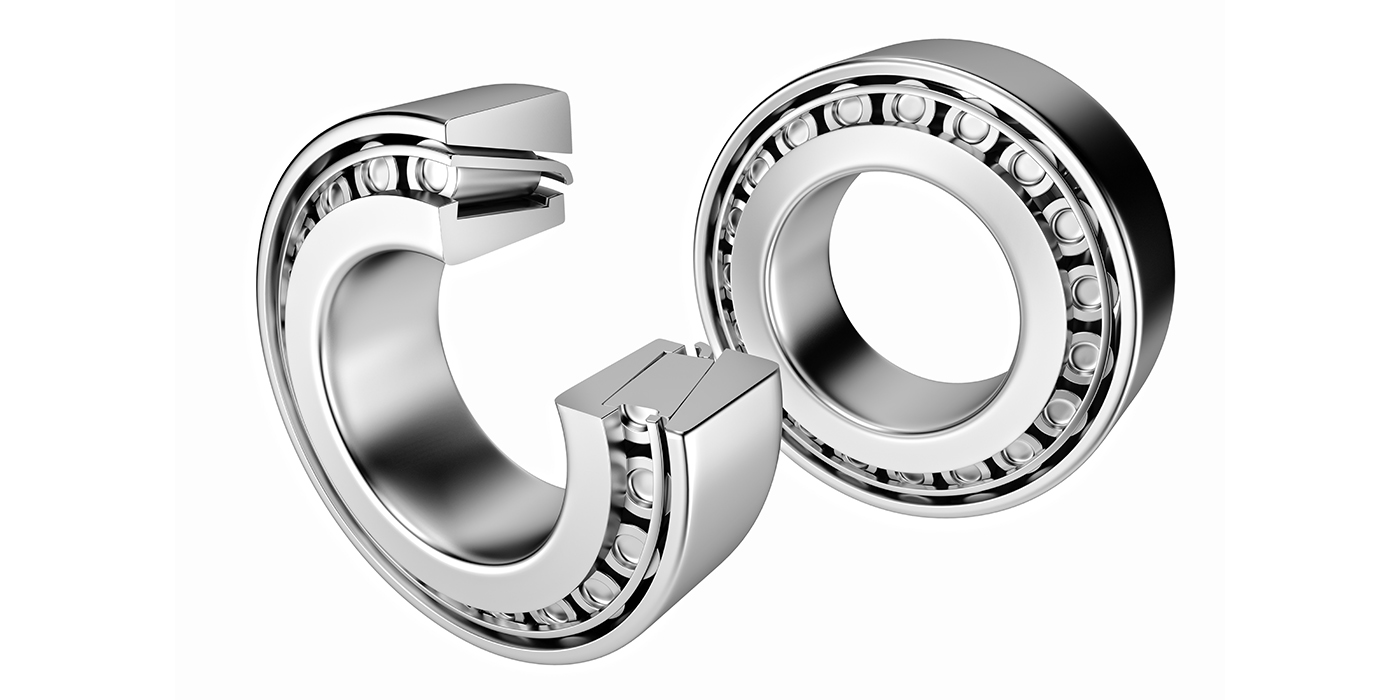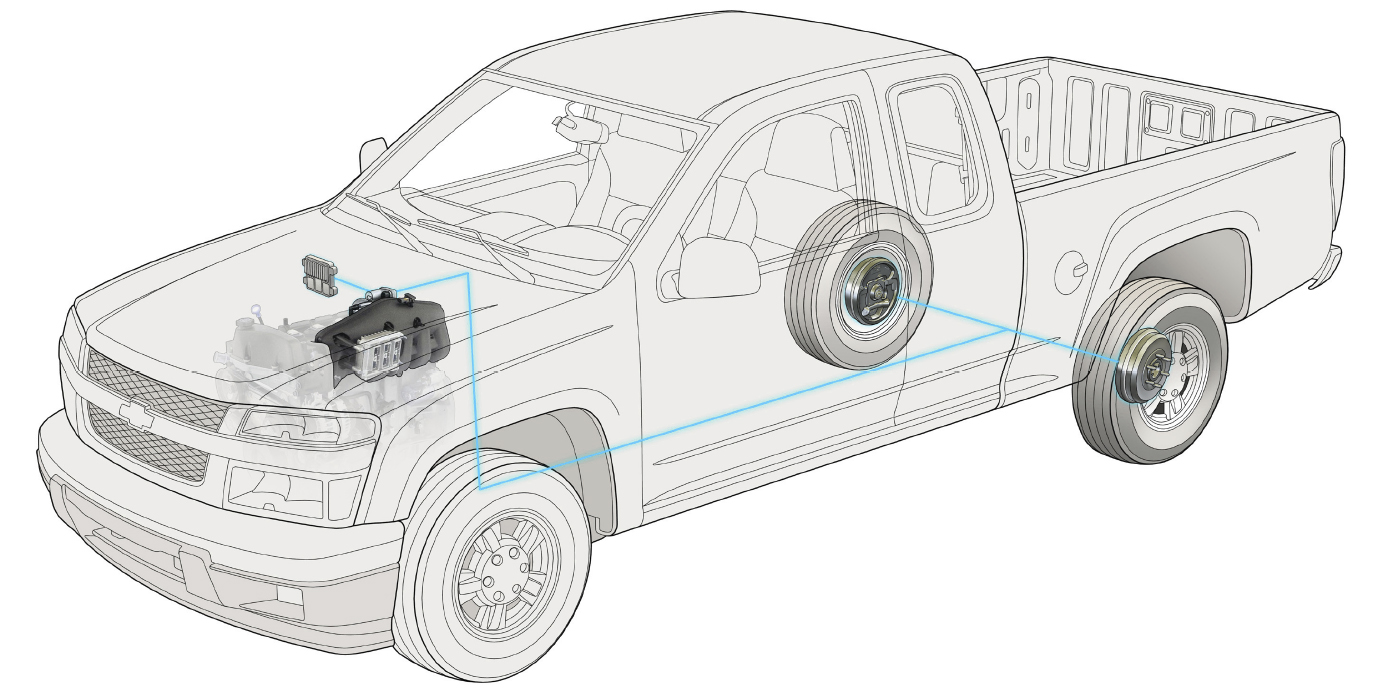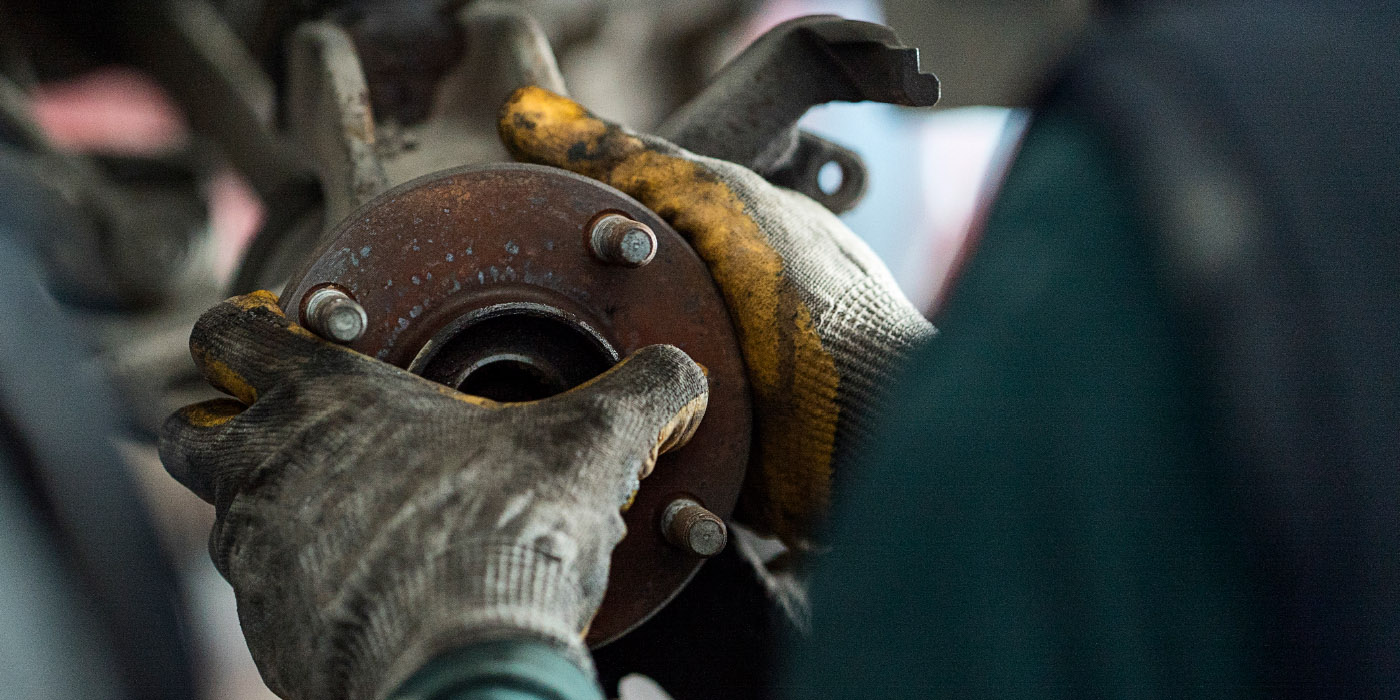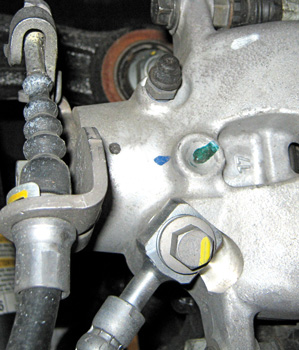 One of the main advantages for the vehicle owner is that loaded caliper assemblies help restore the brakes to like-new condition. Not only do they get new friction, but also a professionally remanufactured caliper and properly matched hardware (shims, bushings, slides, etc.). This significantly reduces the risk of future leaks developing, and uneven braking or pad wear caused by calipers hanging up or dragging.
One of the main advantages for the vehicle owner is that loaded caliper assemblies help restore the brakes to like-new condition. Not only do they get new friction, but also a professionally remanufactured caliper and properly matched hardware (shims, bushings, slides, etc.). This significantly reduces the risk of future leaks developing, and uneven braking or pad wear caused by calipers hanging up or dragging.
Caliper piston seals don’t last forever, and once they start to leak it’s the end of the road for the caliper and the pads. Fluid leaks are dangerous because they can lead to a loss of hydraulic pressure in the brake circuit that may cause the brakes to fail. Brake fluid leaking from a caliper can also contaminate the brake linings and cause them to grab or pull.
A caliper may also have to be replaced if it’s sticking. Internal corrosion can cause pistons to jam or freeze, preventing the caliper from working normally or releasing completely. External corrosion on the caliper mounts, bushings or slides can also cause problems by preventing a floating caliper from moving normally when the brakes are applied. The result here may be uneven pad wear, uneven braking, dragging or a pull. With a loaded caliper, the caliper is replaced along with the pads.
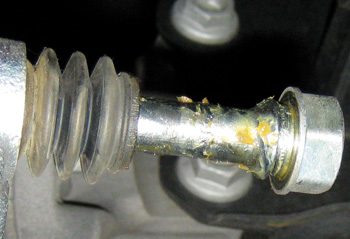 Many technicians have learned the hard way that attempting to rebuild old calipers is often a waste of time. In many instances, the old calipers are so badly corroded or worn that they can’t be rebuilt – or they leak when they are put back on the vehicle. Disassembling a caliper to replace the piston seal and dust boot is a messy job, and may be difficult or impossible if the piston is stuck in place. Steel pistons often can’t be reused because they’re too badly corroded, and scratches or pits in the caliper bore may cause the caliper to leak even after a new piston and seal are installed. That’s why most technicians prefer to replace old calipers with new or remanufactured calipers.
Many technicians have learned the hard way that attempting to rebuild old calipers is often a waste of time. In many instances, the old calipers are so badly corroded or worn that they can’t be rebuilt – or they leak when they are put back on the vehicle. Disassembling a caliper to replace the piston seal and dust boot is a messy job, and may be difficult or impossible if the piston is stuck in place. Steel pistons often can’t be reused because they’re too badly corroded, and scratches or pits in the caliper bore may cause the caliper to leak even after a new piston and seal are installed. That’s why most technicians prefer to replace old calipers with new or remanufactured calipers.
Replacing the hardware is also important because old, corroded hardware can cause braking problems. We’ve heard of shims that have worked loose and caused a rotor to fail by rubbing and cutting through the rotor hat. If a technician forgets to install an anti-rattle clip or installs one that doesn’t fit properly, the newly installed pads may be noisy. Loaded calipers reduce these risks by providing the proper hardware and ensuring that everything that should be replaced is replaced.
The type of friction material that’s included with a loaded caliper assembly is critical because it should be the same as the original or better. If a vehicle was originally equipped with ceramic pads, the loaded caliper should have the same type of friction material. The same goes for semi-metallic pads.
To avoid a mismatch of friction side-to-side when installing loaded calipers on a vehicle, both calipers should be replaced at the same time. If only one caliper is being replaced, be sure to use the same friction material on both sides.
When a loaded caliper is installed, the brake system should always be flushed and refilled with clean, fresh fluid that meets the OEM requirements for the application (DOT 3 or 4 fluid).
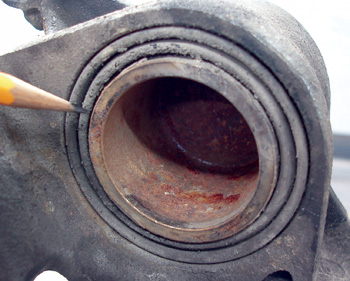 Caliper slides and bushings should be lubricated with a high-temperature brake grease, and related brake components, such as hoses, lines, rear-wheel cylinders and the master cylinder, should all be inspected to make sure these components are in good working condition and are leak-free.
Caliper slides and bushings should be lubricated with a high-temperature brake grease, and related brake components, such as hoses, lines, rear-wheel cylinders and the master cylinder, should all be inspected to make sure these components are in good working condition and are leak-free.
Why Remanufactured Parts?
Everybody knows remanufactured replacement parts are usually less expensive than brand new parts, but are they as good? The answer to that question depends on who supplies the parts and how much expertise and effort they put into remanufacturing their products.
There are top-quality remanufacturers that are QS-9000 certified and turn out reman products that are just as good as many brand new parts. Their prices may be 20-40 percent less than a comparable new part or an OEM part, and they typically offer warranties ranging from one year up to a limited-lifetime warranty.
There are also bargain-priced, low quality remanufacturers. Their prices are extremely competitive, but they may provide nothing more than a short-lived cheap fix. Warranties typically range from 30 to 90 days at most. These kinds of parts might be OK for a do-it-yourselfer who has a very limited budget, or somebody who is fixing a car or truck so he can sell it, but these “second line” reman parts may be no bargain for professional installers who take a chance on them.
The issue of quality is an important one for you because comebacks can really hurt your business as well as your reputation. If a reman part fails, your customer will blame you – not the parts supplier. After all, you were the one who chose the part and installed it on their vehicle. Comebacks like these not only cost you the goodwill of your customers, they can also hit you hard in the pocketbook – even if your supplier offers you a free replacement part because most warranties don’t cover installation labor. Who wants to replace the same part twice, but only get paid for the job once?
Another benefit of using reman parts is that it recycles metal that would otherwise be thrown away. This may require exchanging the old part to receive a core credit with your parts supplier, or it may not if your supplier sells reman parts outright with no exchange.
Remanufacturing typically reuses castings and other major components that can be cleaned, remachined and returned to like-new condition. Items that are subject to wear and corrosion, such as seals, bushings, caliper and wheel cylinder pistons, valves, bleeder screws, springs, etc., are usually replaced with all-new components. Most quality remanufacturers then test the parts to make sure they function correctly before they are boxed and shipped for distribution.
Loaded and semi-loaded calipers generally provide good value for the money and can lower repair costs when price is an issue. If you choose to install loaded calipers, look for a supplier that has a good reputation and stands behind its products.
The bottom line is this: Reman loaded calipers generally provide good value for the money and can lower repair costs when price is an issue. So if you do choose to install reman loaded calipers, choose a supplier who has a good reputation and who stands behind their products. The longer the warranty, the better.

